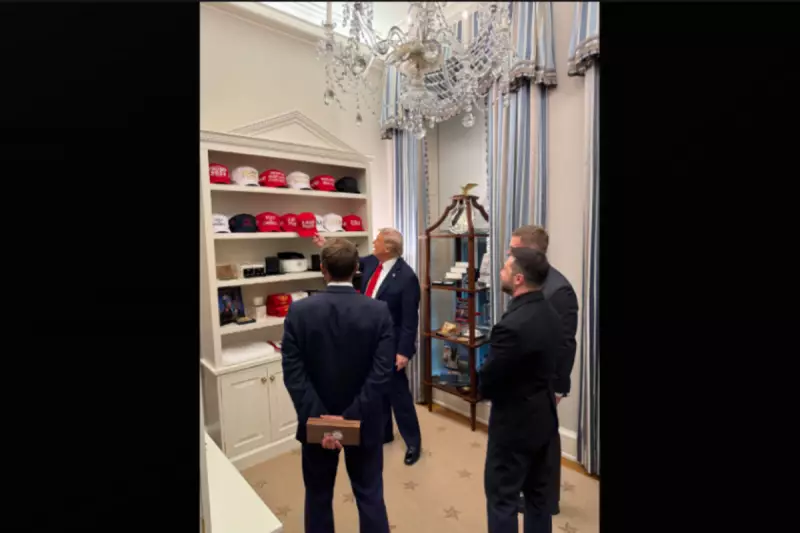
In a stunning new development that blurs the lines between geopolitics and personal branding, former US President Donald Trump is reported to have made a highly unusual request to Ukrainian leader Volodymyr Zelensky at the outset of the Russian invasion.
According to exclusive sources, during a critical period where Ukraine's sovereignty hung in the balance, Trump allegedly suggested that President Zelensky should leverage his global popularity by selling merchandise emblazoned with his image. The proposed venture, shockingly, was to be branded with Trump's own 'MAGA' insignia.
A Proposition Amidst Peril
The conversation, which took place in the early, desperate days of the full-scale war, positioned this commercial proposal alongside discussions about the vital flow of American weaponry and financial support. This has raised profound ethical and diplomatic questions, suggesting a potential leveraging of humanitarian and military aid for personal and political gain.
Insiders close to the matter describe the proposition as part of a broader pattern of behaviour, where Trump sought to intertwine his business interests with the levers of governmental power, even when dealing with a nation under siege.
The White House and the War Effort
The report casts a long shadow over the relationship between the United States and one of its key strategic allies. At a time when bipartisan support in Congress was being marshalled to support Ukraine, this alleged private manoeuvring presents a starkly different picture behind the scenes.
The notion of creating and selling 'Zelensky merch'—from T-shirts to posters—under the Trump branding is seen by analysts as an attempt to capitalise on the Ukrainian president's sudden rise as a global symbol of resistance, while simultaneously promoting the Trump political identity.
Implications and Fallout
This revelation is poised to send shockwaves through the political establishment in Washington and beyond. It not only revisits previous controversies surrounding Trump's dealings with Ukraine but also injects a new, commercially cynical element into the narrative.
Critics are labelling it a profound misuse of power and a blatant disregard for diplomatic protocol during an active conflict. The story adds a complex layer to the ongoing discourse about the intersection of private enterprise and public duty in modern politics.





